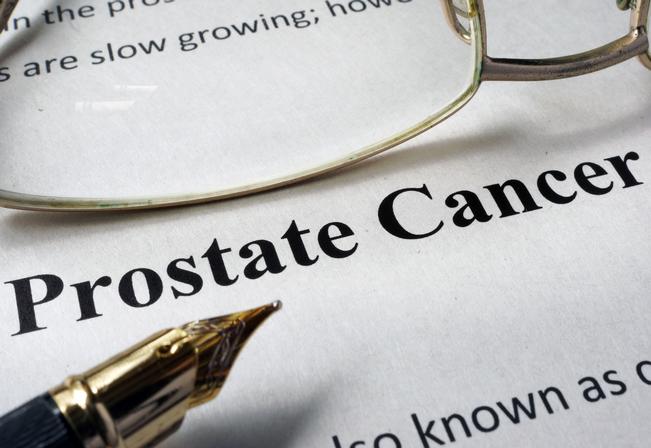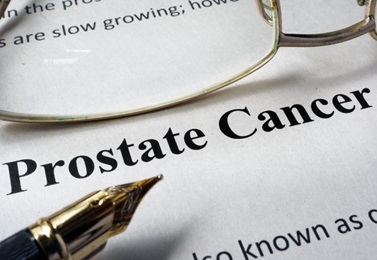Prostate Cancer Symptoms
Most men are diagnosed before showing symptoms
About 85 percent of prostate cancers are detected during early screening tests, before the patient develops any symptoms. A blood test may show abnormally high or rising prostate-specific antigen (PSA) levels. Or, a physician may detect abnormalities during a routine rectal exam.
Symptoms of Prostate Cancer
Though early warning signs of prostate cancer are rare, sometimes men experience symptoms before they are diagnosed. The severity of symptoms may depend on where the cancer is located in the prostate and how advanced it has become. However, having any of these symptoms does not necessarily mean that you have prostate cancer or that the disease has progressed beyond its early stages.
Urinary Symptoms
- A need to urinate frequently, especially at night
- Difficulty starting urination or holding back urine
- A weak or interrupted flow of urine
- Painful or burning urination
- Hematuria (blood in the urine)
Erectile and Ejaculatory Symptoms
- Difficulty achieving or maintaining an erection
- Painful ejaculation
- Blood in the semen
- Decreased volume of ejaculation (though hydration, diet and frequency of ejaculation are more likely than prostate cancer to impact the volume of fluid)
Lower Extremity Symptoms
- Frequent pain or stiffness in the lower back, hips or upper thighs
- Swelling in the lower extremities
If a patient experiences bone pain and swelling in the lower extremities—especially when accompanied by urinary, erectile or ejaculation dysfunction—these could be symptoms of advanced prostate cancer.
When to See a Doctor
Consult with your doctor if you experience any of the symptoms discussed on this page particularly if they have been going on for a while. You will need a thorough work-up to determine the underlying cause, which may or may not be prostate cancer.
It’s important to understand that other diseases or disorders can share these same symptoms. Benign prostatic hyperplasia (BPH), also called enlargement of the prostate, and are quite common. Men with these benign conditions can experience symptoms more often and more severely than men with prostate cancer.
Erectile dysfunction is relatively common, especially as one ages, and can also have causes unrelated to prostate cancer, such as smoking or cardiovascular disease. Experiencing a lower amount of fluid during ejaculation can be related to something as simple as diet or dehydration.
It’s important to keep track of your symptoms, determining what’s normal or abnormal for your own body. If you are worried about a particular symptom, or if it’s interfering with a relationship, you should discuss your concerns with your primary care physician.






